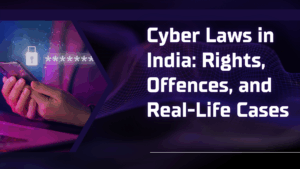In this post, we have come up with a comparison of 5-Year vs 3-Year Law Courses in India and also understand which one you should choose and the factors to consider.
5-Year vs 3-Year Law Courses in India: Which One Should You Choose?
In India, selecting a law degree requires selecting between two well-liked options: the 3-year LLB program and the 5-year integrated LLB program. The Bar Council of India (BCI) has approved both programs, which provide legitimate routes to becoming a lawyer. Each, however, has unique advantages, restrictions, and applicability based on your educational background and professional objectives.
In order to assist you in making an informed choice, we have compared the course structure, eligibility, costs, and career opportunities of three-year and five-year law programs in India in this article.
Overview of Law Courses in India
There are two primary categories of LLB programs available in India:

1. Five-Year Integrated Law Course
- Blends an LLB with a bachelor’s degree (such as a BA, BBA, or BCom).
- Created for pupils immediately following Class 12.
- Provided by prestigious law schools such as Jindal Global Law School, Symbiosis, and NLUs.
2. Three-Year LLB Program
- A stand-alone law degree for graduates in any field.
- Accessible at reputable universities such as Government Law Colleges, Delhi University, BHU, and Pune University.
More Details: Get Here
Vertical Comparison: 5-Year vs 3-Year Law Courses
| Feature | 5-Year Integrated LLB | 3-Year LLB |
|---|---|---|
| Eligibility | 10+2 (Any stream) | Graduate in any discipline |
| Duration | 5 years | 3 years |
| Degree Awarded | Dual (e.g., BA LLB, BBA LLB, BCom LLB) | LLB only |
| Entry Age | 17–20 years | 21+ years |
| Course Structure | Law + non-law subjects from day one | Law-focused curriculum only |
| Popular Entrance Exams | CLAT, SLAT, LSAT India | DU LLB, MH CET Law, BHU UET |
| Top Colleges | NLSIU, NALSAR, JGLS, Symbiosis | DU, GLC Mumbai, BHU, ILS Pune |
| Cost Range (Fees) | ₹10–25 Lakhs (Private), ₹1–5 Lakhs (Govt/NLUs) | ₹20,000–₹3 Lakhs (mostly affordable options) |
| Ideal For | Students aiming for early legal career start | Graduates switching careers or adding legal edge |
| Career Scope | Litigation, corporate law, judiciary, academia | Same, though may need early career adjustments |
5-Year vs 3-Year Law Courses: Which Course Is Right for You?
Select the 5-Year LLB if:
- After school, you are certain that you want to pursue a career in law.
- Early exposure to fundamental legal topics is what you want.
- Through CLAT, you’re trying to get into esteemed law schools like NLUs.
- You’re looking for a thorough curriculum that incorporates law with business, commerce, or the arts.
Select the 3-Year LLB if:
- After graduation, you became interested in law.
- You wish to switch from a career in engineering, management, or the arts to law.
- You want to get into the legal field more quickly.
- You want to go into law or litigation without having to complete five years of school.
Entrance Exams and Admission Process
5-Year LLB: Admission is extremely competitive. The most popular is the Common Law Admission Test (CLAT), which is followed by the Symbiosis SLAT and the LSAT India.
3-Year LLB: State-level university examinations such as DU LLB, BHU LLB, and MH CET Law are common entrance exams.
5-Year vs 3-Year Law Courses: Career Opportunities After Both Courses
You can practice law and register with the Bar Council of India with either degree. Career choices consist of
- Advocate Litigation
- Advisory for Corporate Law
- Judiciary (through higher judiciary or PCS-J)
- Legal Process Outsourcing (LPO)
- Research, Education, or Legal Journalism
As long as the course is from a reputable university and you pass the bar, it has no bearing on the range of your career.
Conclusion
In India, three-year and five-year law programs are both beneficial, but they serve different student populations. The five-year program offers depth and early exposure if you’re just graduating high school and are certain that a career in law is for you. On the other hand, the 3-year LLB program provides a targeted and expedited route into the legal profession if you have already graduated or are changing careers.
Before deciding on the best course for legal success, consider your age, financial situation, academic background, and long-term objectives. We sincerely appreciate you staying here to read this post in the interim.






